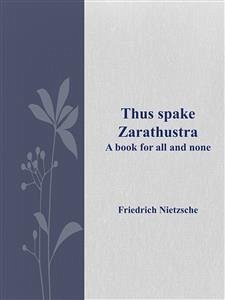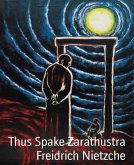Nineteenth-century German philosopher and classical philologist. He wrote critical texts on religion, morality, contemporary culture, philosophy, and science, using a distinctive German language style and displaying a fondness for metaphor and aphorism. Nietzsche's influence remains substantial within and beyond philosophy, notably in existentialism and postmodernism. His style and radical questioning of the value and objectivity of truth raise considerable problems of interpretation, generating an extensive secondary literature in both continental and analytic philosophy. Nevertheless, some of his key ideas include interpreting tragedy as an affirmation of life, an eternal recurrence (which numerous commentators have re-interpreted), a rejection of Platonism, and a repudiation of both Christianity (especially 19th-century) and Egalitarianism (especially in the form of Democracy and Socialism).
Bitte wählen Sie Ihr Anliegen aus.
Rechnungen
Retourenschein anfordern
Bestellstatus
Storno









